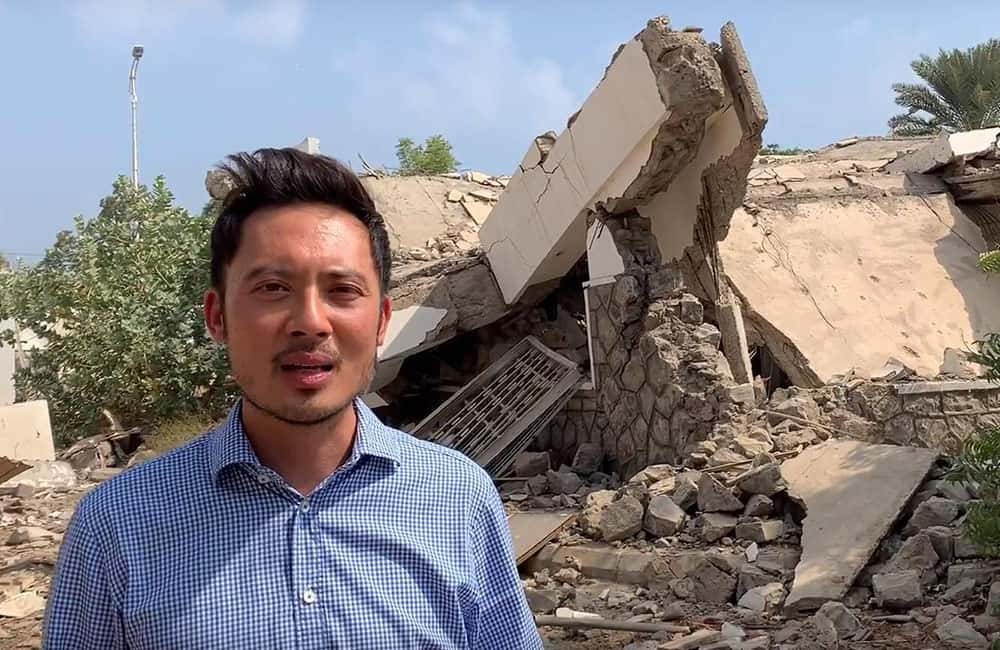
Jason Lee in Yemen. He is now taking up a post in the Occupied Palestinian Territories.
Photo: Supplied
But Jason counts his time in Sierra Leone during the Ebola epidemic as one of the highlights of his career. “We were able to stop the transmission of the virus in West Africa. That was due to hard work and luck. The first year I was there was really stressful, trying to work out what to do. But at the end of it, we did stop it.”
That hope and those results have guided him ever since, through postings in the Middle East and Africa. This year as the world again commemorates World Humanitarian Day, Jason says, it’s time for everyone to come together again to stop another crisis from devastating communities around the globe.
No future for Yemeni children
“Here in Australia, we’re lucky that we have a health system that functions well. The government has provided economic stimulus packages for people out of work. In many parts of the world, like Yemen, there’s nothing. The health system was ravaged before COVID-19. You had cholera, you had malnutrition, there was no industry, no jobs. There’s no safety net. There really is a bleak future. Here in Australia we’re worried about COVID-19, and rightfully so, but in Yemen, there’s no food or medicine, no jobs, a barely functional health system and no social safety net. That situation, overlaid with COVID, is just disastrous. All my postings have been difficult. But for me the most painful was Yemen, because I felt it was completely avoidable. Everything that we see in Yemen is because of the conflict. If we stopped the conflict, all these issues we see with the malnutrition, the cholera, all the communicable diseases, will ease up.”
It’s up to everyone to play their part, says Jason. Humanitarians and supporters alike. “Humanitarian workers act as a band-aid,” he says. “Whenever there’s a health crisis, a disaster or conflict, we are there to provide a safety net that has inevitably been destroyed. We make sure that people stay alive, and that they have access to water, food and education. But we’re not governments. We’re not political and we don’t take sides. All we care about is preserving life and ensuring that things don’t get worse.”
How we can support humanitarian work
Supporters in Australia can also play an important role, in voicing their thoughts to their government. “We have to advocate for and ask our elected representative what the Australian Government is doing to support a peaceful negotiated settlement between the different factions within Yemen, so that there’s a ceasefire. Because that’s the only way the situation in Yemen will improve and the lives of children will get better.”
And on World Humanitarian Day, he has a special message for everyone who makes his work possible through their generosity. “It’s a privilege to do this work. Sometimes you see the worst of humanity, the worst of what we do to each other. But I also get to see the best in people. No matter how horrible a situation is, no matter how much devastation, or how much suffering, human beings are extraordinarily resilient. The generosity of people reminds me of why I do the work that I do. I believe everywhere in the world can get to where Australia is. Where every child, every man, every woman, has the opportunity to do what they want to do with their life. That’s something we should strive for. Irrespective of who the children are; it really doesn’t matter, we just have to make sure that all kids have the right to education, to healthcare, the right to be protected and safe.”